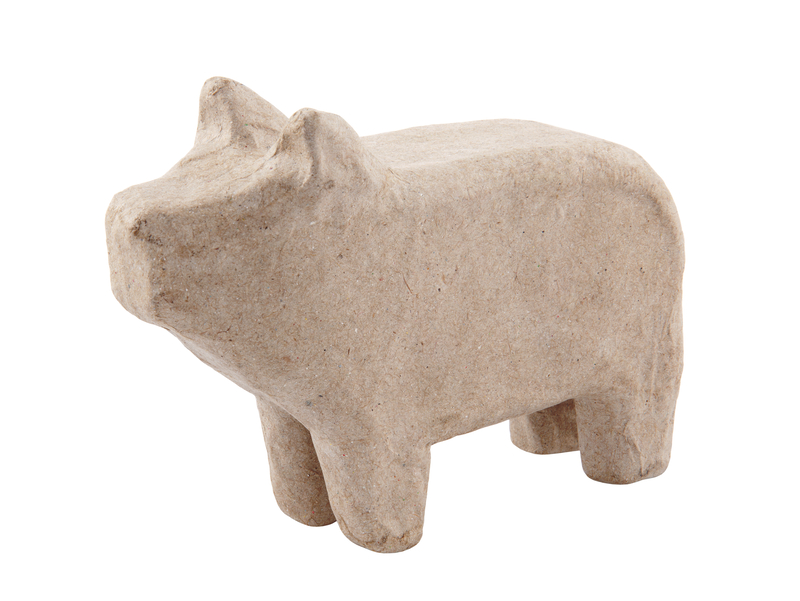Bulky Waste Items on a Budget - Money-Saving Strategies
Dealing with bulky waste items can be a daunting task, especially if you're on a tight budget. From old furniture and appliances to yard debris and mattresses, disposing of these oversized items cost-effectively requires creativity, planning, and a little know-how. In this comprehensive guide, you'll discover proven money-saving strategies to handle large waste items without breaking the bank, while also helping the environment and supporting your community.
Understanding Bulky Waste Items
Bulky waste items refer to objects that are too large for regular curbside garbage collection. These items typically include:
- Old furniture (couches, beds, shelving)
- Large appliances (refrigerators, washing machines, dryers)
- Mattresses and box springs
- Yard debris (branches, logs, large bags of garden waste)
- Carpets and rugs
- Construction materials (tiles, bathtubs, sinks)
- Miscellaneous oversized household items
Due to their size and composition, responsibly discarding, recycling, or reusing bulky waste becomes crucial both for your pocket and the planet. Many municipalities charge steep fees for removal, but with the right approach, you can save money and maybe even put your unwanted items to good use.

Why Proper Bulky Waste Disposal Matters
Tossing out large items willy-nilly isn't just expensive--it can also be damaging to the environment. Many bulky items are made of materials that can be reused, recycled, or hazardous if left in a landfill. Improper disposal could result in fines, environmental harm, or health risks. That's why finding budget-friendly bulky waste management solutions helps your wallet and your world.
Top Money-Saving Strategies for Bulky Waste Management
1. Plan Your Bulky Waste Removal Ahead of Time
Advance planning is a key step to keeping costs under control. Don't wait until the last minute, as urgent removal services are often pricier. Assess what items you have, their condition, and what local options are available. Sometimes, combining your bulky waste collection with neighbors or during a community event can save you significant money.
2. Utilize Free Municipal Bulky Waste Collection Days
Most cities hold free or low-cost bulky waste days once or twice a year. Here's how to take advantage:
- Check your city or county website for a calendar of bulky waste collection events.
- Book ahead if appointments are required.
- Group all your items to be ready for pickup on the allotted day--this maximizes your cost savings.
Tip: Some municipalities restrict volume or item types. Read their guidelines to avoid extra charges or missed collections.
3. Donate Usable Items
Not all bulky items are destined for the dump. If your furniture, appliances, or household goods are in good condition--maybe just outdated or not needed--donating can be a win-win:
- Charities and thrift stores often accept gently-used bulky items and may even pick up from your home for free.
- Online platforms like Freecycle, Craigslist, or Facebook Marketplace are great for posting items you want to give away quickly.
- Some non-profits offer tax deductions for donations, which puts some money back in your pocket at tax time.
By donating, you support your community and reduce landfill waste without extra costs.
4. Sell or Give Away Bulky Waste Online
If your items have some value or reuse potential, list them online:
- List big items on Facebook Marketplace, Craigslist, OfferUp, or eBay Local.
- Be honest about their condition. Even nonworking appliances or "project" items can attract DIY buyers.
- Encourage buyers to pick up, saving you disposal fees and hauling effort.
Making a few dollars is always better than paying for disposal--plus, you're giving items a second life!
5. Recycle Bulky Waste Items
Many components of bulky items can be recycled:
- Metal appliances (like washing machines or old grills) contain steel and aluminum, which scrap yards often buy or take for free.
- Mattresses can sometimes be recycled or broken down for parts. Check for local mattress recycling programs.
- Wood or timber may be repurposed for crafts or building projects.
Contact your city recycling center or private scrap dealers to see what they accept. This can save money and keep valuable materials out of landfills.
6. Share or Split Disposal Costs with Neighbors
If you and your neighbors are tackling spring cleaning or renovations, consider splitting costs:
- Rent a dumpster together for a flat fee. The more people involved, the cheaper it is per household.
- Join forces for a bulk pickup service--some companies offer lower rates for multiple homes on a street.
- Organize a community clean-up event--sometimes the local government will waive fees or provide free pickups if enough residents participate.
This collaborative approach can cut your bulky waste disposal costs dramatically while building neighborly goodwill.
7. Repurpose or Upcycle Bulky Items
With a little creativity, many large household waste items can find a new purpose:
- Turn old wooden furniture or pallets into planters, shelves, or garden benches.
- Convert metal bed frames into unique trellises or functional garage racks.
- Repurpose mattresses as soundproofing material or children's play mats (after ensuring they're clean, sanitized, and safe).
Upcycling not only saves money but can become a fun DIY project!
8. Disassemble Items Yourself for Cheaper Disposal
Larger items often attract higher pickup or tipping fees because of their size. If you break them down into parts (remove legs from sofas, cut up wood), you might:
- Fit more in your vehicle, reducing trips to the dump.
- Qualify for regular trash pick-up if the parts are smaller and manageable.
- Save on landfill fees that are calculated by volume.
Just remember to wear gloves, goggles, and use appropriate tools to stay safe.
9. Use "Pay-Per-Item" Junk Removal Services Judiciously
If you cannot haul items yourself, some companies will remove individual bulky pieces for a flat fee. To save money:
- Only use this option for items too awkward or hazardous to move yourself.
- Get multiple quotes and negotiate--rates can vary widely.
- Ask if grouping items together lowers the cost per item.
Pro money-saving tip: Stack all your bulky waste items at the curb or an accessible spot before your appointment to reduce labor costs.
10. Research Landfill or Transfer Station Discounts
Some municipal landfills or transfer stations offer discounted dump fees to residents on certain days, or for certain item types (like yard waste or appliances). Here's what to check:
- Official city or county websites for discount programs
- Promotions for "clean up weeks," especially during spring or fall
- ID or proof of residency required--bring your utility bill
Common Mistakes to Avoid with Bulky Waste Items
- Dumping illegally - Abandoning bulky waste in alleys, sidewalks, or unrented lots can lead to hefty fines.
- Ignoring recycling - Many parts of furniture or appliances are recyclable; throwing everything in the landfill is wasteful and sometimes more expensive.
- Missing municipal events - Skipping free pickup days means paying for what could have been free disposal.
- Forgetting to check condition - Items in good or repairable shape might be worth selling or donating.
Bulky Waste Disposal for Renters and Apartment Dwellers
If you rent or live in a multi-family building, you might not have direct access to curbside pickups or dumpsters. Here's how to save money:
- Ask your landlord or property manager about scheduled bulky item collection events.
- Pool resources with neighbors or roommates for private collection services.
- Use local community boards or apps (like Nextdoor) to give away items you can't store or move easily.
Case Studies: Real-Life Bulky Waste Money Savers
Case 1: The Neighborhood Dumpster Share
A group of five families in a suburban neighborhood chipped in to rent a 20-yard roll-off dumpster for a long spring cleaning weekend. By collaborating, they reduced their individual bulky waste expenses from $350 to just $75 each--a saving of over 75%. They also made a weekend event out of it, helping each other haul and even salvaging reusable items for each other.
Case 2: Turning Trash to Cash
Susan, a recent downsizer, took pictures and posted her unwanted but usable couches, dining sets, and exercise equipment on Facebook Marketplace. She managed to sell half of it, earning $275, and gave the rest to a local charity that picked up for free. Her only out-of-pocket expense was a single $40 trip to the city landfill for truly unsalvageable items.
Environmentally Friendly Bulky Waste Disposal Tips
- Avoid landfills for items with reusable or recyclable components.
- Donate whenever possible--many groups need furniture and appliances.
- Opt for recycling programs for electronics, mattresses, and metal items.
- Repurpose wood and metal for home improvement or gardening projects.
- Use reputable haulers who recycle a significant portion of collected material.

FAQs: Bulky Waste Items on a Budget
Q: What are the cheapest ways to dispose of bulky waste items?
* Use municipal bulky pickup days.
* Donate or sell usable items.
* Group dumpsters or pickups with neighbors.
* Disassemble items for easier disposal.
Q: What items can I donate or sell instead of dumping?
Furniture, appliances (even ones needing minor repair), tools, metal goods, and sports equipment are all candidates for donation or resale, depending on condition.
Q: How do I find out when free bulky waste pickups are scheduled?
Visit your city or county sanitation website, or call your local waste management office.
Q: What if I can't lift or move large items myself?
Look for local charities offering free pickup, or hire a pay-per-item junk removal service and negotiate rates.
Q: Are there special rules for disposing of appliances or electronics?
Yes--many appliances and electronics require special handling due to toxic components. Check for city e-waste or white goods recycling events.
Conclusion: Save Money and Help the Environment
Bulky waste items don't have to be a budget buster. By planning ahead, using community resources, donating or reselling what you can, and recycling smartly, you can keep your house clutter-free without spending a fortune. Many of these strategies are environmentally friendly and put value back into your community. Next time you're faced with a large item to discard, remember: with a little effort, you can achieve effective bulky waste disposal on a budget!
Save money, cut waste, and benefit your neighborhood by making thoughtful choices when managing your large trash items. Share these tips with others to spread the savings and the sustainability!